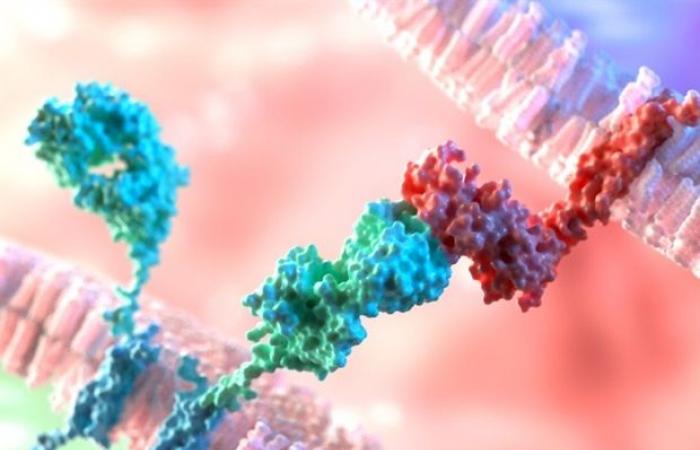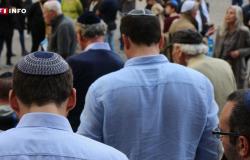Russell W. Jenkins, MD, PhD, a physician-scientist at the Krantz Family Center for Cancer Research at Mass General Cancer Center and assistant professor of medicine at Harvard Medical School, is the lead author of a new study on immunology research in cancer,” TBK1 is identified as a therapeutic strategy to enhance the efficacy of CAR T cells using patient-derived organotypic tumor spheroids.”
The study was a collaboration with the late Soldano Ferrone, MD, PhD, and was carried out by his daughter Cristina Ferrone, MD, Moshe Sade-Feldman, PhD, and several other collaborators at Massachusetts General Hospital.
What question were you investigating with this study?
What factors contribute to treatment resistance in chimeric antigen receptor (CAR)-T cell therapy treatments for solid tumors?
Although CAR-T therapeutic treatments have been shown to be effective in patients with blood tumors, their effectiveness in solid tumors has been limited due to various factors, including the tumor microenvironment.
We used a unique 3D microfluidic model of tumors to study the treatment resistance mechanisms of CAR-T cells engineered to target B7-H3, a common antigen in solid tumor cancers.
What was unique about your approach?
Although several different 3D models of tumors exist, their ability to faithfully reproduce key elements of the tumor microenvironment is limited.
We used patient-derived organotypic tumor spheroids (PDOTS), 3D microphysiological models that reproduce key features of the tumor microenvironment, enabling the study of interactions between tumors and immune cells.
What did you find?
We found increased expression of inhibitory receptors in CAR T cells after their first encounter with target cells, which caused dysfunction and limited their effectiveness.
By inhibiting the function of TBK1, a gene previously associated with immune evasion, we were able to restore CAR-T cell activity, prevent dysfunction, and increase T cell proliferation.
We also found that inhibition or deletion of TBK1 made cancer cells more susceptible to immune cell targeting and killing.
What are the clinical implications and next steps?
The results suggest that targeting TBK1 could reduce treatment resistance and improve CAR T efficacy in B7-H3-expressing solid tumor cells.
The results also explain the feasibility and utility of using PDOTS to study interactions between tumors and immune cells.
-How did you come to work with ferrones?
Soldano Ferrone’s laboratory was on the same floor as ours, and his office was a few doors down from mine. We would frequently bump into each other and chat while making coffee in the morning or afternoon. After hearing about our PDOTS models, he said, “We should collaborate and test our CAR-T cells in your PDOTS models. »
As a newly appointed researcher, I was excited that such an experienced researcher was interested in partnering, but I wasn’t sure where the science might take us.
Initially, Soldano’s group simply provided the CAR-T cells and we tested them on a handful of PDOTS samples.
But when we started seeing a decrease in sensitivity to CAR-T cells in our PDOTS models that otherwise “should” have been responsive, we knew we had something big. We iterated from then on, and this project was co-led by Yi Sun, PhD, from my lab, and Luke Maggs, PhD, from the Ferrone Lab.
After Soldano passed away, we wanted to complete the project, but needed continued support and supply of CAR-T cells.
With the continued support of Cristina Ferrone, MD (now at Cedars Sinai) and Xinhui Wang, MD, PhD, (MGH) in generating and supplying the CAR-T cells, we were able to conclude the project.
What other resources or collaborations made this study possible?
All of our studies using PDOTS require a robust tissue banking infrastructure to provide high-quality patient tumor samples.
Without excellent partnerships and collaborations with Genevieve M. Boland, MD, PhD, and Sonia Cohen, MD, PhD, this work would not be possible.
In addition to the leadership and vision provided by Drs. Boland and Cohen, the day-to-day operations of collecting, banking and distributing patient tumor samples rely on a well-trained, knowledgeable and dedicated team, led by Tatyana Sharova and Aleigha Lawless.
Our team operates on the main MGH campus to take advantage of the proximity to clinics and operating rooms, and Izabela Panova (our lab manager on Jackson 9) ensures that everything continues to run smoothly.
Moshe Sade-Feldman, PhD (also KF-CCR principal investigator and assistant professor of medicine) and his team were instrumental in performing the single-cell RNA sequencing studies necessary to determine how the tumor microenvironment altered both tumor cells and CAR T cells in our PDOTS models.
Finally, funding from the Massachusetts Life Sciences Center Research Infrastructure Grant to establish the MGH Tumor Mapping Center allowed us to purchase much of the instrumentation used in this study.






